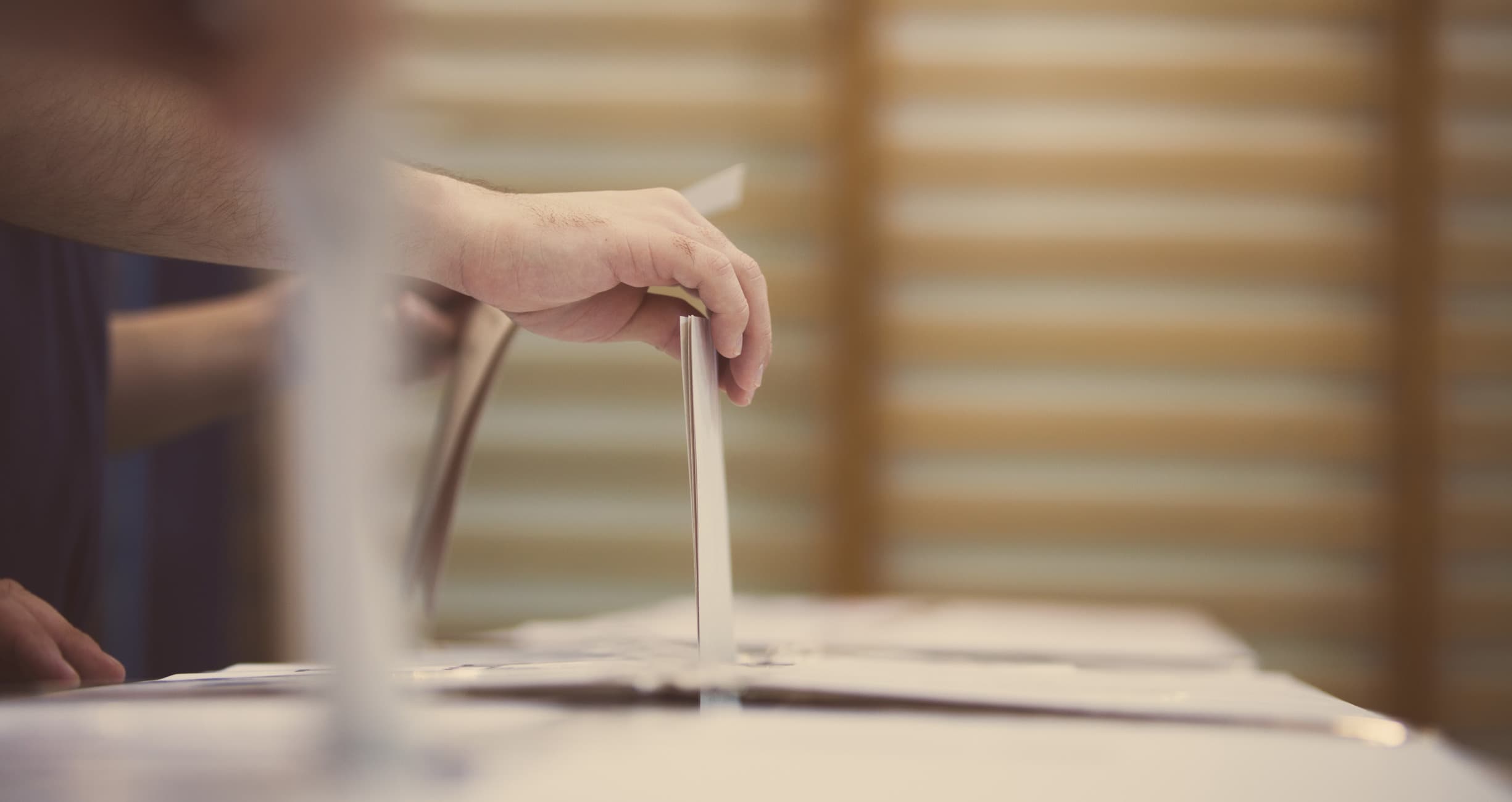People Leaving Prison Should Have the Right to Vote
Undemocratic bans keep millions of people from exercising their right to vote, but some states are finally working to right this injustice.
This November, millions of people will be denied the right to vote because of a prior felony conviction. If these disenfranchised Americans—an estimated 4 million, according to a 2024 Sentencing Project report—were a state unto themselves, they would be the 29th largest in terms of population and, on average, carry seven Electoral College votes—the same number as Oklahoma and Connecticut and, in some years, enough to decide a presidential election.
Undemocratic bans across the country prevent many people who were once convicted of a crime from exercising their fundamental right to vote. The United States is an outlier globally in this regard; most countries that administer elections rarely or never strip voting rights from someone just because they are found guilty of a crime.
Disenfranchising people who have completed a prison sentence does not build safety
Policies that deny the right to vote after a conviction stand on shaky legal ground. The denial of this basic right is yet another way the collateral consequences of criminal convictions punish people well beyond the completion of their sentences. Moreover, some research suggests that, in communities with widespread disenfranchisement, people who are eligible to vote may also be discouraged from exercising that right. Some people have been arrested for voting when they believed they were eligible, only strengthening the chilling effect.
Post-conviction voting restrictions are especially pernicious given what we know about who is criminalized and arrested. Black and Hispanic people make up 62 percent of people held in correctional facilities despite constituting only 32 percent of the population at large. Prior convictions bar 4.5 percent of the adult African American population from the ballot box, compared to just 1.3 percent of non-African American adults. Disenfranchising people convicted of crimes compounds the harms of mass incarceration on Black communities, whose members are criminalized, arrested, and incarcerated at disproportionate rates, diluting their political power. This is by design; these restrictive voting bans have their roots in the Jim Crow era that followed the end of Reconstruction, during which states legalized segregation. Justification for some of these bans in the early 20th century included explicit calls from legislators to establish white supremacy.
The states chipping away at the injustice of voter disenfranchisement
Since 2016, 24 states and the District of Columbia have enacted some reforms that expand voting rights to people with conviction histories. Some of those are limited expansions of rights, while others are wholesale inclusions. For instance, Minnesota Governor (and current vice presidential nominee) Tim Walz signed a statewide law last year that restores voting rights to people who have left prison.
Other states are going even further. In Michigan, where people with felony convictions are already allowed to vote, state lawmakers have moved to automatically register eligible residents to vote upon their release from incarceration. The change, which goes into effect next year, is part of a broader effort to ensure currently and formerly incarcerated people also have essential documents like birth certificates and state IDs. By including voter registration in this push, State Representative and bill sponsor Penelope Tsernoglou hopes to turn theory into practice.
"Michigan actually has a really good rate of voter registration, but we wanted to increase that even more, and the incarcerated population is one of the populations that is least likely to be registered to vote,” Tsernoglou told NPR.
Other states are considering similar legislation. In Maryland, which allows most people convicted of felonies to vote, legislators passed an automatic registration bill in the state’s House of Delegates, but the state Senate failed to vote it into law. The bill would be especially significant because Maryland currently cancels eligible voters’ registration upon conviction; they must manually re-register upon completion of their sentence.
The path forward
State-level reforms are important, but federal legislation could also greatly expand voting rights to millions of Americans currently denied suffrage because of a past conviction. These reforms, at the federal or state level, are common sense: people should not be defined by a past conviction. And the communities harmed the most by mass incarceration are denied their political voice when people convicted of a crime are disenfranchised. Our democracy depends on the full participation of voters from all corners, including those returning from prison.
